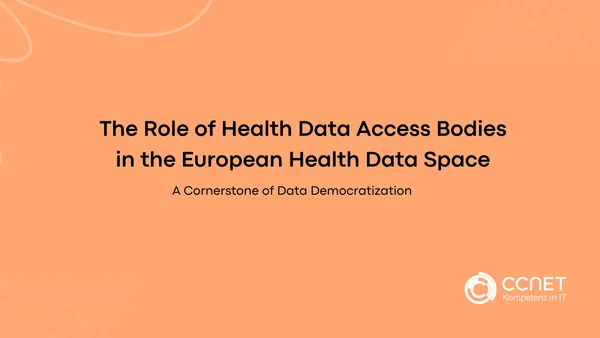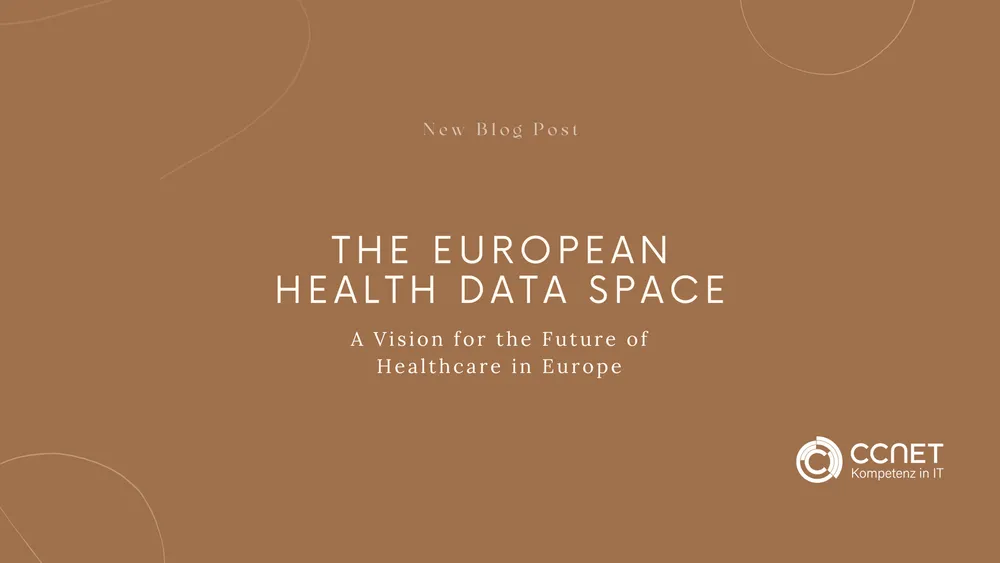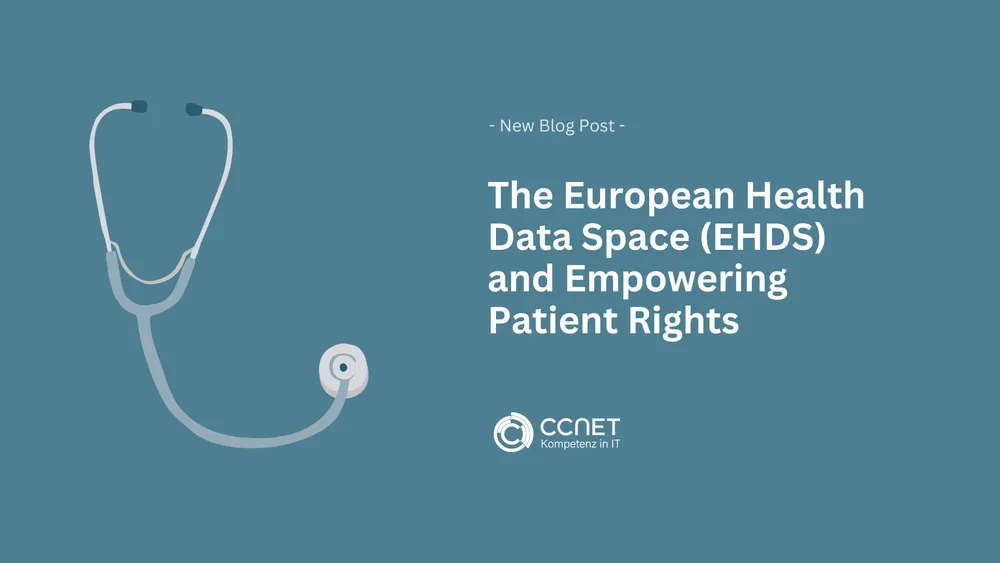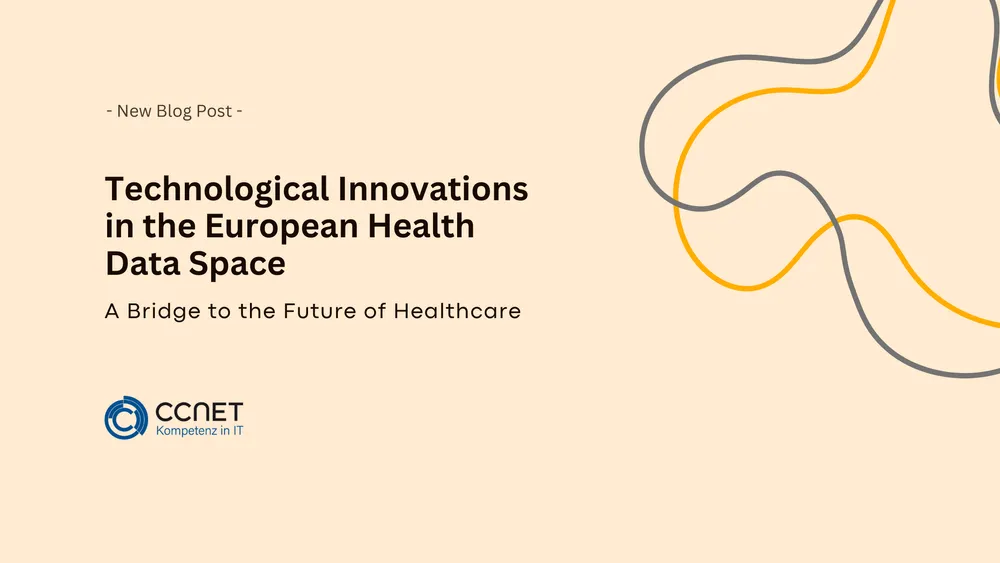
CCNet
Sep 2, 2024 • 2 min read

The Role of Health Data Access Bodies in the European Health Data Space: A Cornerstone of Data Democratization
The European Health Data Space (EHDS) marks a turning point in the utilization of digital health information within the European Union. At the core of this initiative lies the introduction of health data access bodies, which play a central role in managing and providing access to health data. These bodies not only act as intermediaries between data sources and users but also serve as guardians of data privacy and security. This blog post takes a detailed look at the role of these access bodies and discusses their significance in promoting innovation, research, and patient-centered healthcare.
A New Paradigm of Health Data Utilization
The establishment of health data access bodies under the EHDS framework is a crucial step toward a more unified and efficient approach to handling health data in Europe. These bodies serve as central hubs for the request and provision of data, reducing fragmentation and facilitating cross-border data flow within the EU. Their role spans across several key areas, from ensuring compliance with data protection regulations to supporting research and innovation.
Data Privacy and Security
Ensuring data privacy and security is at the forefront of the responsibilities of health data access bodies. They are tasked with implementing strict data protection policies and ensuring that all data requests adhere to applicable legal requirements. By implementing mechanisms for monitoring and auditing data access, these bodies help strengthen citizens' trust in the digital health infrastructure and ensure that their data is only used for authorized purposes.
Promoting Research and Innovation
One of the main goals of the EHDS is to accelerate medical research and innovation within the EU. Health data access bodies play a key role in this endeavor by providing regulated access to valuable health data. Researchers can submit requests through these bodies to obtain data for studies and projects that have the potential to improve healthcare and contribute to the development of new treatment methods and technologies. By simplifying access to this data, access bodies help lay the groundwork for groundbreaking medical discoveries.
Supporting Patient-Centered Care
Health data access bodies not only support research and innovation but also facilitate the implementation of patient-centered care. By facilitating the secure exchange of patient data among different healthcare providers, they help improve care continuity and enable a holistic view of patient history. This is particularly important in a borderless Europe, where patients have the freedom to seek medical treatment anywhere in the EU.
Challenges and Perspectives
The introduction and operation of health data access bodies undoubtedly present a complex challenge. They require careful planning, resource allocation, and continuous monitoring to ensure their effectiveness and compliance with data protection laws. Additionally, they need to gain the trust of the public by demonstrating transparency and accountability in their operations.
Despite these challenges, health data access bodies offer a unique opportunity to transform the landscape of health data utilization in Europe. By serving as catalysts for the secure and efficient use of health data, they have the potential to improve healthcare quality, promote research and innovation, and ultimately enrich the lives of EU citizens.
Concluding Thoughts
The role of health data access bodies in the European Health Data Space represents a cornerstone in the advancement toward integrated, secure, and innovative use of health data in the EU. By promoting data privacy, supporting research, and improving patient care, these bodies are leading the democratization of healthcare data, ensuring broader access and better outcomes for all. While realizing this vision comes with its challenges, the potential of the EHDS to positively change the healthcare landscape is undeniable.


